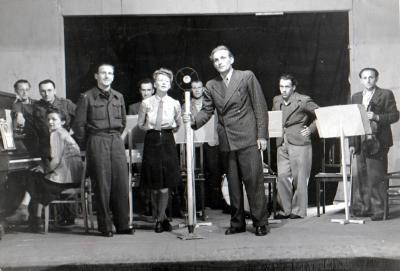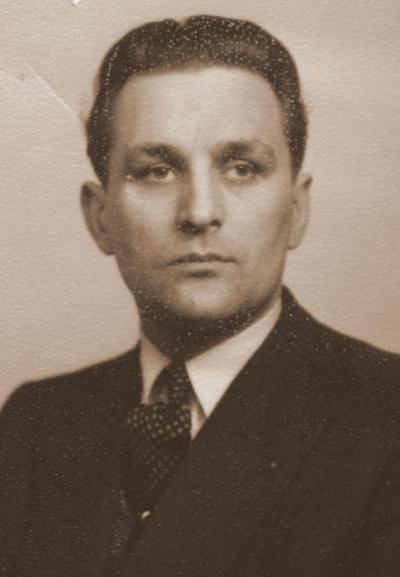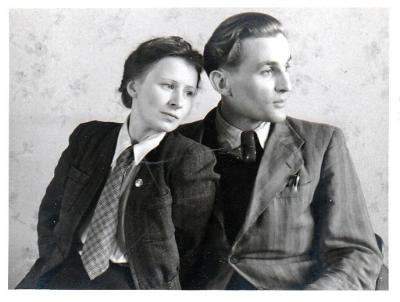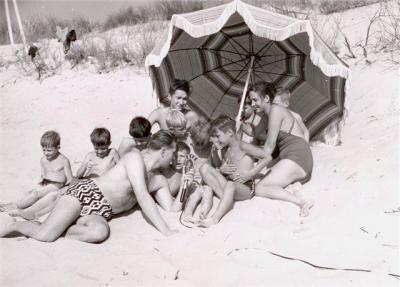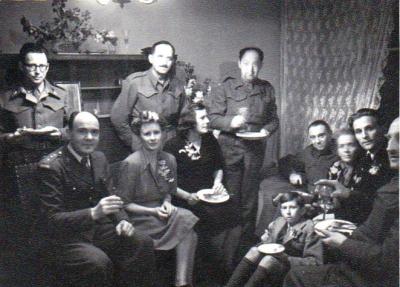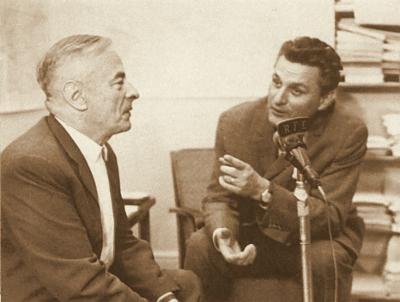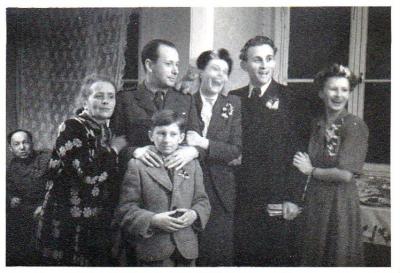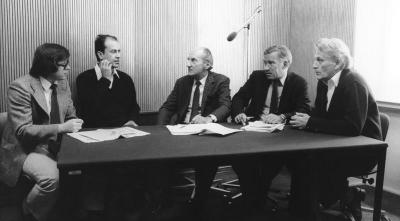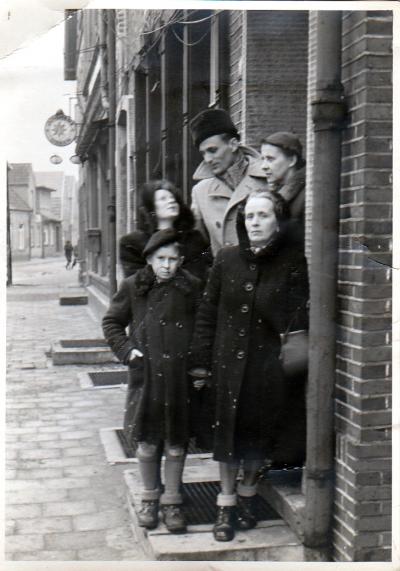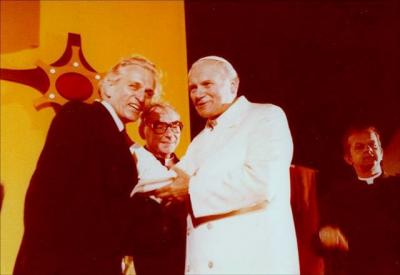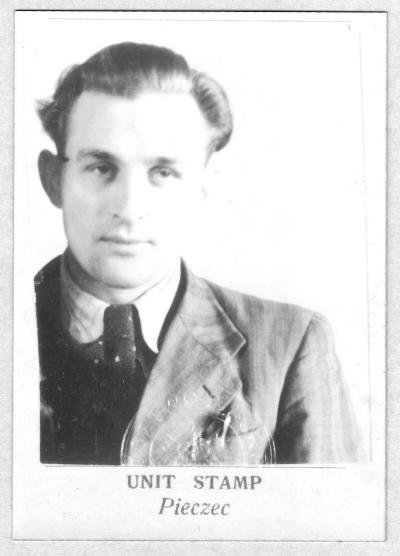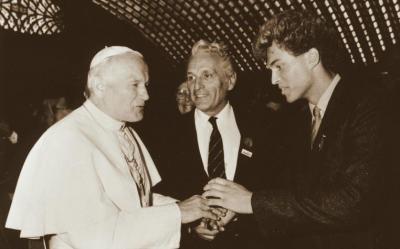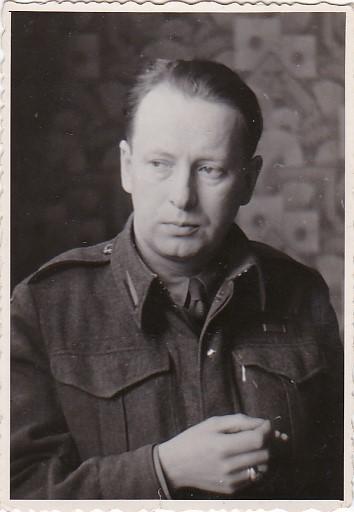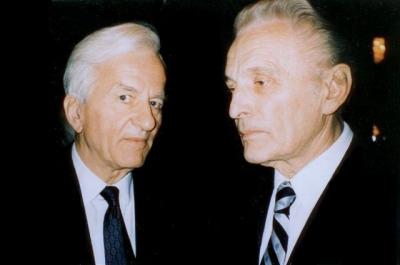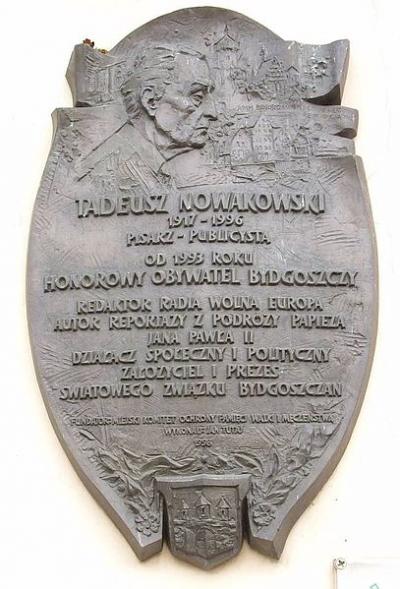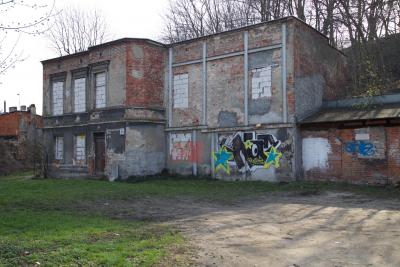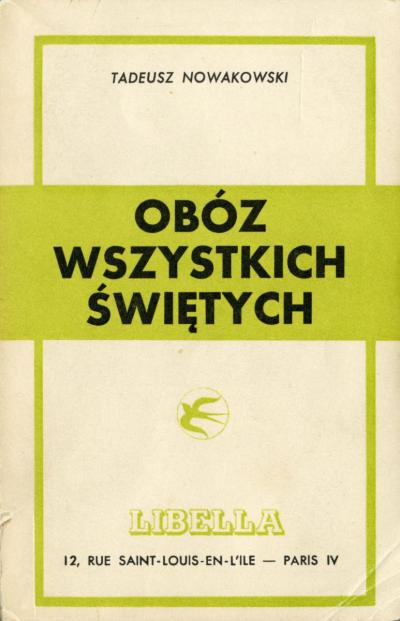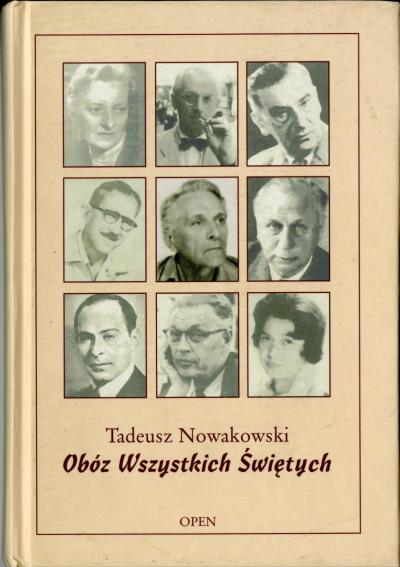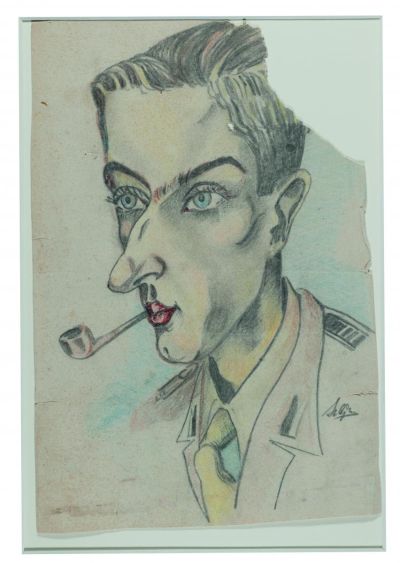Tadeusz Nowakowski

Till the end of a war Nowakowski spent the rest of his time in prisons and concentration camps: in Włocławek, Inowrocław, Bautzen, Zwickau, Dresden, Elsnig-Vogelgesang and finally in Salzwedel, where he was freed by the American army. He subsequently arrived in the Displaced Persons Camp in Haren (Ems) in the Emsland, a town that was renamed “Maczków” in honour of General Stanisław Maczek, the commander of the 1st Polish Tank Division that had liberated the town, occupied it and taken over responsibility for its administration. Here Nowakowski found a job as a teacher at a Polish grammar school. And here he developed his literary interests and wrote the initial fragments of his most important novel, as well as poems and short stories which he then sent to the Polish literature magazine “Wiadomości” (The News), that had been revived in London at the start of 1946.
Since his life as a displaced person was anything but easy and – much more importantly – his future prospects were nil, he travelled to Italy in autumn 1946 after his efforts to leave Germany proved successful. In Italy he joined the 2nd Polish Corps (at the time it was known as the Polish Training and Divisional Corps: Polski Korpus Przysposobienia i Rozmieszczenia) who had ended its campaign here and was scheduled to move to Great Britain under General Anders, where it would be demobilised in 1947.
Nowakowski was spared the quarantine imposed on soldiers in the training camps. He found somewhere to live in the Polish “House of Writers” in Finchley Road, which was supported by funds from the exile government, and here began his career as a journalist and writer. He was the head of the magazine “Poland in the World” (Polacy na Świecie), worked for the Polish Department of the BBC and wrote for the publishing houses of the “Światpol” (Światowy Związek Polaków z Zagranicy or World Association of Poles Abroad), as well as for congresses of Poles in America. In 1948 “Światpol” in London published his first major work, a cycle of short stories entitled Szopa za jaśminami, which was translated into Dutch, (“The Hute under the Jasmin) and Italian. In 1950 the book was awarded a prize by the London Catholic Publishing Centre “Veritas”, whereby it was erroneously listed in a lexicon of writers and bibliographies in a section entitled “Memoirs of German camps”.
“The Hut under the Jasmin” can in no way be regarded as a memoir, for it is a masterly work of literature dedicated to the theme of concentration camps, a cycle of short stories with an autobiographical background written by the protagonist whose name is the same as that of the author because, like Nowakowski, he is forced to endure several prisons and camps, although he avoids flashbacks and the use of past tenses. The storyteller’s companions are always the same prisoners. They turn up at intervals in several of the short stories in the cycle; in some of them as the main characters, in others as bit players, and in others yet again when they are already dead but ever-present in the consciousness of the protagonist as victims of the camp terrors. When the protagonist learns of the end of the war, he sets out on an imaginary journey (nonetheless with realistic accents) via Holland and Belgium to Paris, Rome and London, where his travels that had started in 1939 come to an end when he witnesses the victory parade.
Observing the delirious masses he is conscious that the reality of the “other world” will always remain alive in him and his fellow prisoners who he had encountered during his ordeals in the concentration camps, and that their traumatic experiences will set them apart from all those people who had never such a hellish existence. Nowakowski shows the effects of the machinery of extermination on the minds of the prisoners (and also on those of their executioners) by portraying the reality of the camps from the point of view of people who are helplessly exposed to the brutal pressures, and who can only make them bearable by resorting to irony, self-mockery, a mixture of tragedy and comedy, of sublime earnestness and primitive vulgarity.
